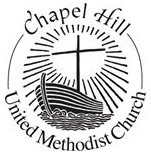In worship yesterday, we discussed the focus of sacrifices of atonement being restitution rather than retribution. In other words, the sacrifices were offered as gifts to right the wrongs committed toward God rather than a result of a wrathful God needing to exact revenge but finding a substitute to receive that revenge rather than the humans responsible for their sin.
Approaching sacrifice as restitution changes the way we may view life after faith and what reconciliation looks like. We will cover these topics in two parts with part two coming in a future newsletter.
Regarding life after faith, there is a tendency to view life after faith as almost inconsequential. This comes from the retribution view of sacrifice combined with Calvinism’s Perseverance of the Saints theology that is colloquially known as “once saved, always saved.” In other words, if the faith I receive because of Jesus’ death and resurrection covers my past, present, and future sins and I am just a saved sinner, I can rest in forgiveness when I sin again and not be concerned with repentance and making things right with God and my neighbor. There is only so much I can do since we are trapped in sin until the end. Also, the world is still wracked with sin, so we sometimes have to live the way the world is structured in order to survive, meaning we have to make ethical compromises. The good news is those faith are free from the wrath of an angry God.
I do not believe this is John Calvin’s teaching absolutely correctly understood. Nevertheless, it is how it is often applied. And Calvinism has shown a history of harsh, legalistic application to the other extreme beginning with Calvin’s Geneva. Sin post-faith, or as proof of lack of faith was a significant issue and needed to be punished.
Wesleyan theology fits the restitution framework of sacrifice much better. On one hand, it acknowledges the significance of sin post-faith. However, a God of steadfast love, slow to anger is not just waiting to lash out at humans. It also acknowledges that humans are never stripped by God of their agency to choose faith or not. Someone once faithful may choose to no longer have faith. Yet it does not mean you have found yourself outside the faith every time you sin.
It does, however, mean we must be diligent in relying on the Holy Spirit to help us grow in love so that sin becomes less and less a factor in our lives. It means we continue to confess and repent when we fail. It means our lives continue to be transformed by love, not wrath, and that love then transforms the love around us. It means we follow God’s way of love no matter how difficult the life of love proves to be. Yet while our sin still matters, we do not offer another sacrifice. The sacrifice of restitution has already been given once for all by God enfleshed in Jesus of Nazareth, the Christ. Our restitution is to return to love as we have been empowered by the Holy Spirit to do.
The restitution has been made. May it lead us to love.
Grace and peace,
Rev. J.D. Allen

